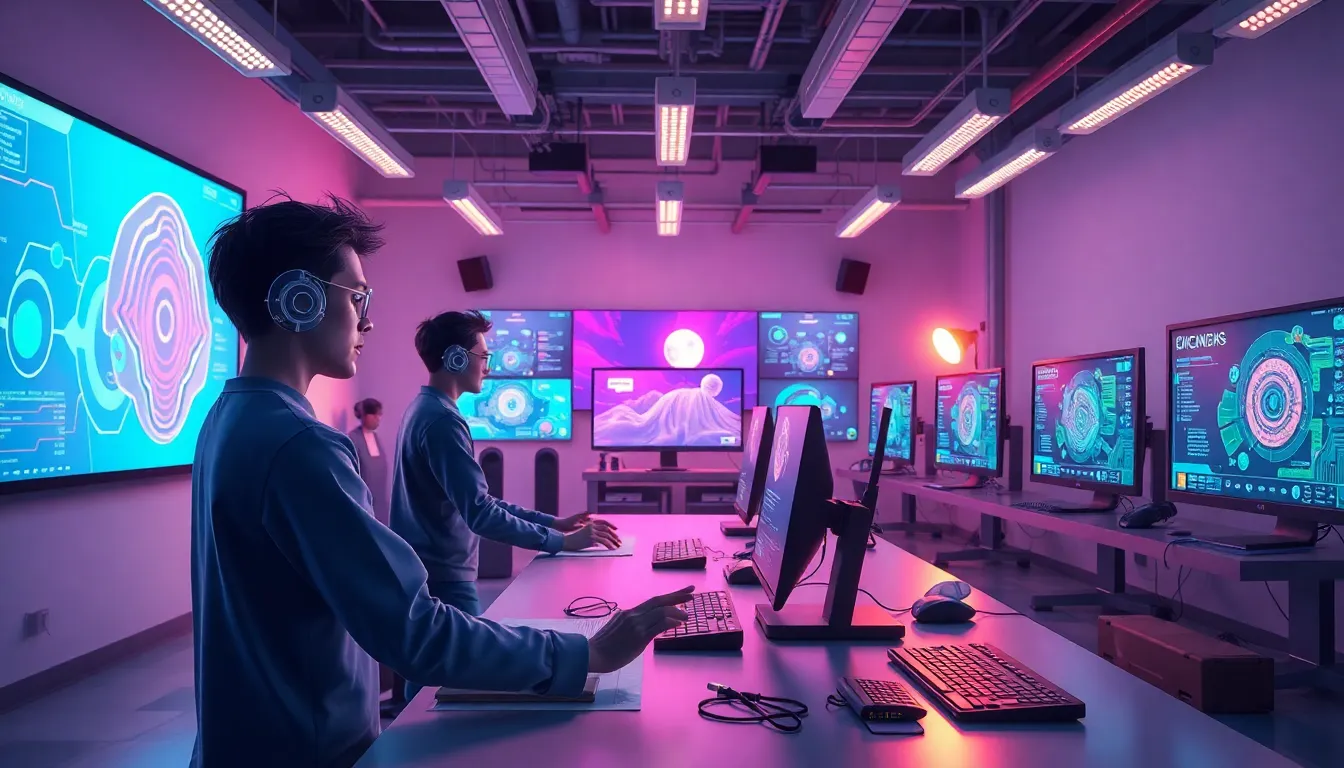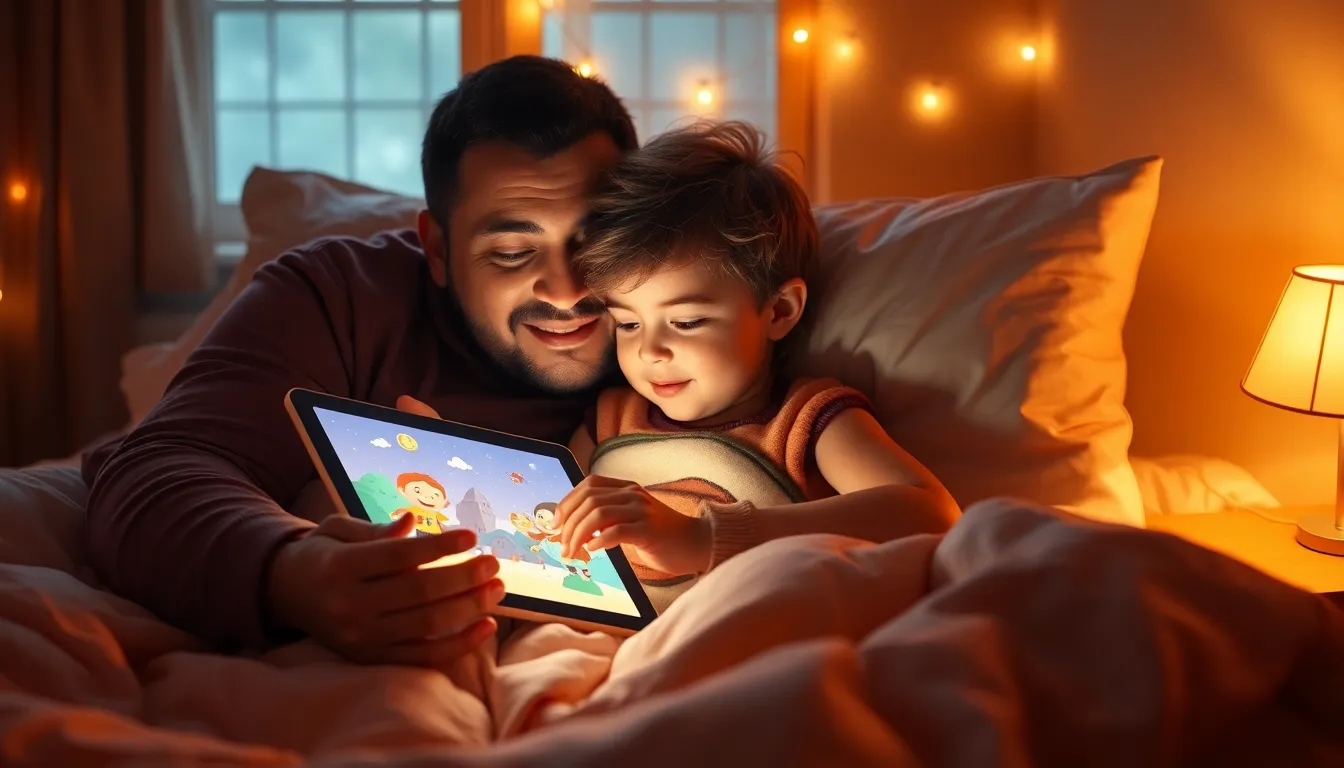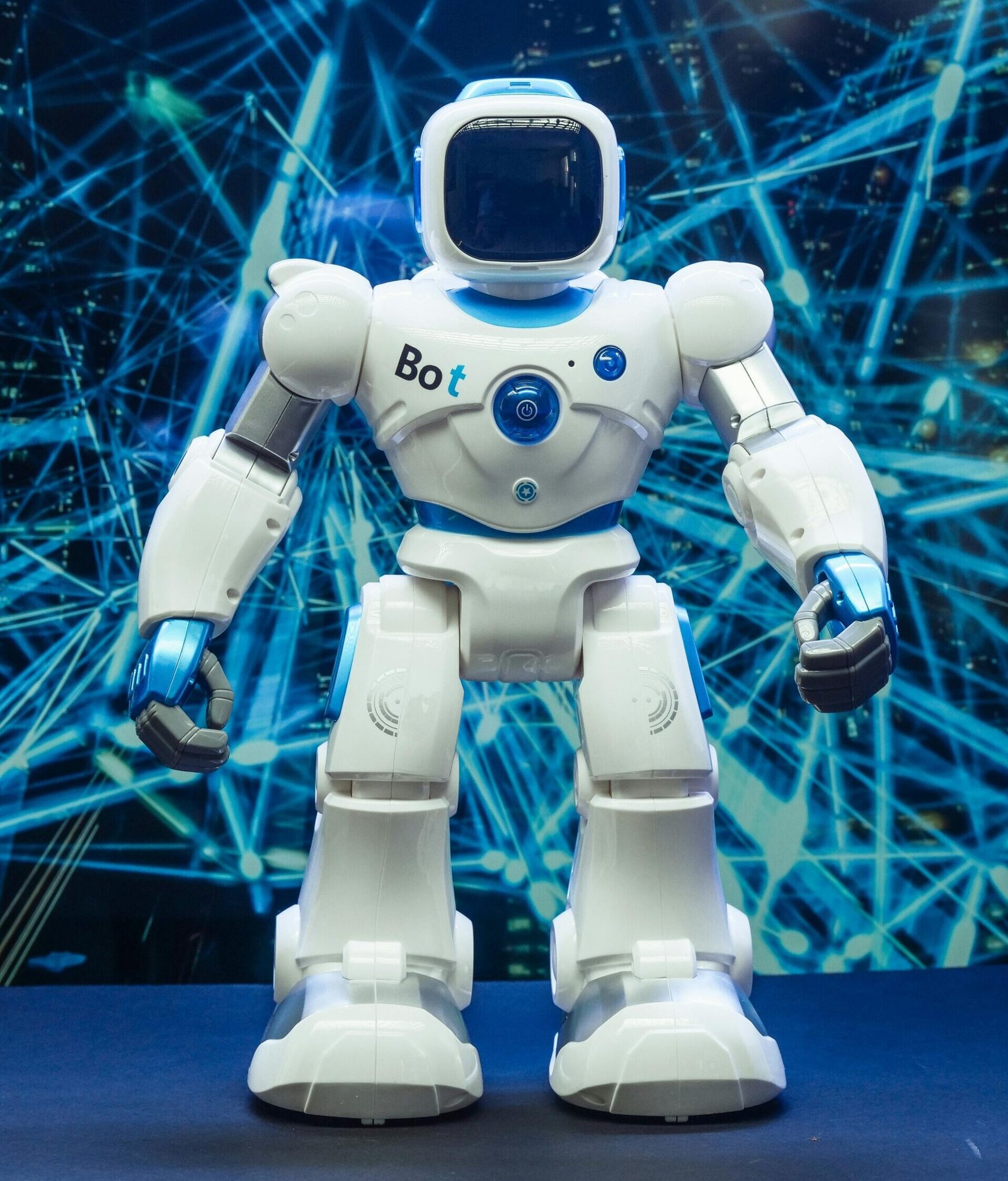OpenAI and Google Coolab Changes the Rules of Storytelling, fundamentally transforming content creation by slashing film production costs by over 85% and democratizing personalized narratives for millions. These unprecedented advancements are not only accelerating professional workflows but also making sophisticated storytelling tools freely accessible to a global audience.
Key Implications:
- Production Efficiency: AI tools drastically reduce film production costs by over 85% and timelines by 75%, exemplified by projects like Critterz, making high-quality content creation faster and more economically viable for the industry.
- Democratization of Creativity: Platforms such as Google’s Gemini Storybook empower individuals to generate free, personalized, illustrated stories with narration in over 45 languages, removing barriers and fostering widespread creative expression.
- Navigating IP and Workforce Shifts: The integration of AI into creative models introduces complex debates around intellectual property ownership, potential job displacement for roles like storyboard artists, and the critical challenge of verifying digital content authenticity.

AI Slashes Film Production Costs by Over 85% and Timelines by 75%
Artificial intelligence is dramatically reducing the traditional financial and temporal barriers in high-quality content creation. A full-length animated feature film can now be produced on a budget that is less than 15% of traditional projects and in under a quarter of the typical time. This transformation highlights how OpenAI and Google Coolab Changes the Rules of Storytelling, fundamentally altering industry paradigms.
Drastic Cost Reductions in Film Production
The AI-animated feature film Critterz exemplifies this profound economic shift. Its production budget stands at under US$30 million. In stark contrast, traditional animated movies frequently command price tags exceeding US$200 million.
Consequently, Critterz demonstrates a production cost reduction of over 85% compared to legacy studio models. This efficiency fundamentally redefines financial benchmarks for animated content. Such a dramatic decrease in expenditure allows for greater accessibility to high-quality film production.
Unprecedented Acceleration of Production Timelines
Beyond financial savings, AI also streamlines production schedules dramatically. Critterz aims to complete its entire production in just nine months. Traditional animated movies typically require three to five years, equating to 36 to 60 months.
This accelerated timeline represents an extraordinary reduction of 75% to over 85% from conventional schedules. The capacity to bring complex projects to market much faster presents significant strategic advantages. Therefore, AI tools are eliminating lengthy stages of traditional animation workflows, enabling creators to respond more quickly to market trends.
The Hybrid Production Paradigm
Critterz employs a sophisticated hybrid production model to achieve these efficiencies. Human artists initiate the creative process with initial sketches, establishing the foundational artistic direction. Subsequent stages integrate advanced generative AI tools, leveraging platforms like OpenAI’s GPT-5 and various image-generating models for content enhancement. You can explore how these tools compare for writing creative stories.
Furthermore, Sora 2 is utilized for video and audio generation, processing visual and auditory elements efficiently. This demonstrates how to make 7 marketing videos with Sora AI. Human voice acting and established writers also remain integral components, ensuring narrative depth and performance quality. This collaborative framework highlights the transformative potential of artificial intelligence.
The integration shows how OpenAI and Google Coolab Changes the Rules of Storytelling by blending human creativity with AI-driven efficiency to revolutionize the film industry. The application of AI in creative and business fields consistently delivers faster output and higher return on investment, underscoring this paradigm shift.

Free AI Tool Empowers Personalized Story Creation for Millions in 45+ Languages
Google’s Gemini Storybook is truly democratizing narrative creation, offering a groundbreaking, free, and instant tool. This platform transforms how we engage with stories. Users can effortlessly generate customized, illustrated 10-page adventures in mere moments, complete with engaging read-aloud narration.
This fantastic tool supports over 45 languages. It ensures personalized storytelling knows no linguistic bounds. It fosters deep personal connection and unleashes creativity on an unprecedented, massive scale. The collaborative advancements between pioneering AI platforms are truly shifting paradigms, demonstrating how OpenAI and Google Coolab changes the rules of storytelling. This makes previously complex creative tasks incredibly simple.
Unlocking Universal Accessibility and Creative Freedom
The core appeal of Gemini Storybook lies in its remarkable accessibility and personalization features. It transforms storytelling into a universally available, immediate experience for everyone. Users simply describe their desired story. Alternatively, they can upload a child’s drawing, which the AI then animates into a unique narrative. This incredible ease of use removes all barriers to creative expression.
Imagine the boundless possibilities: guiding a curious child through the wonders of the solar system, or instilling vital lessons about kindness through bespoke tales. You could even turn a memorable family trip to Paris into a custom, illustrated adventure. Gemini Storybook profoundly emphasizes its role in education, family bonding, and fostering individual creativity. It’s a tool designed to inspire and connect.
A New Era for Personalized Narratives
The platform’s capabilities are truly impressive. It delivers a customized, illustrated 10-page book within moments. Critically, Gemini Storybook is completely free for users, making this powerful creative technology accessible to all. The availability of read-aloud narration in more than 45 languages further enhances the immersive experience. It breaks down global communication barriers. This clearly illustrates how OpenAI and Google Coolab changes the rules of storytelling, pushing boundaries for personalized content.
While platforms like Critterz may aim for the “grandeur of the big screen,” Gemini Storybook thoughtfully embraces the “cosy privacy of a parent’s phone at bedtime.” This distinct divergence highlights its focus on intimate, personal experiences rather than public spectacles. The rapid generation of unique narratives, combined with multilingual support, showcases a powerful shift in content creation, offering unparalleled opportunities for engagement.
Consider the transformative impact of AI in creative and business fields, leading to 40% faster workflows and a 20% ROI. This efficiency echoes the immediate story generation by Gemini Storybook. If you are exploring how Gemini compares to ChatGPT for creative writing, you’ll discover the unique strengths of each AI. The ease of creating dynamic narratives also extends to video generation. AI tools simplify the process of making marketing videos with Sora AI.

The integration of generative AI into creative industries, propelled by advancements from platforms like OpenAI and Google Coolab, demands a delicate balance between human and artificial intelligence. This shift concurrently triggers significant debates surrounding intellectual property ownership and potential job displacement, particularly within the creative middle class.
Film industry guilds have fiercely defended protections against AI, anticipating widespread job displacement for creative roles. Professionals such as storyboard artists, junior animators, and assistant writers face particular vulnerability. Legal battles highlight the contentious issue of copyright infringement in this evolving landscape.
Disney and Universal sued AI provider Midjourney, with Warner Bros. Discovery bringing a similar case, over allegations of copying copyrighted material. These lawsuits underscore the significant legal and ethical complexities involved when AI systems are trained on existing creative works. For insights into this area, explore how AI is writing creative stories.
Intellectual Property and Ownership in AI Creativity
Approaches to intellectual property rights vary significantly within the evolving AI landscape. Critterz, for instance, relies on humans to create initial art feeding AI tools and for voice characters. This structured approach is likely qualifying it for copyright protection.
Conversely, Google has yet to clarify how Gemini Storybook manages the intellectual property rights of its generated images and styles. This presents a stark contrast in IP management clarity, raising concerns for creators regarding their legal standing and control over their work. Clear frameworks are crucial for fostering trust and innovation in this complex domain.
Addressing Workforce Shifts and Job Displacement
The pervasive entry of AI into creative fields presents complex challenges and necessitates adaptations for enterprises and society. Anticipated displacement for professionals like storyboard artists demands proactive solutions that acknowledge their expertise and contributions. Critterz’s team of approximately 30 individuals sought to tackle job displacement concerns with a profit-sharing model.
This innovative approach offers a potential template for integrating AI while supporting human creators financially. The OpenAI and Google Coolab changes the rules of storytelling by accelerating content generation capabilities. This technological advancement requires industries to redefine traditional roles and explore hybrid creative models. Further discussions around these transformations can be found in content about AI in creative and business fields.
The Cultural Challenge of Authenticity
A significant cultural challenge emerges concerning authenticity in AI-generated media. Google’s Veo 3 makes discerning authentic video from synthetic increasingly difficult, leading to a potential trust crisis. This difficulty extends beyond entertainment, impacting areas like journalism and legal evidence.
Therefore, society faces an imperative to develop new methods for verifying digital content origin and ensuring transparency. This challenge underscores the need for robust ethical guidelines and technological solutions to maintain public confidence. Understanding tools like Sora AI for making marketing videos highlights the capabilities producers face.
Navigating these shifts requires continuous dialogue and policy development. Balancing technological advancement with human rights and artistic integrity remains a paramount societal goal. The OpenAI and Google Coolab changes the rules of storytelling will continue to evolve, demanding careful consideration of its profound implications.
Featured image generated using Flux AI
Technology Magazine: “OpenAI and Google Coolab Changes the Rules of Storytelling”
